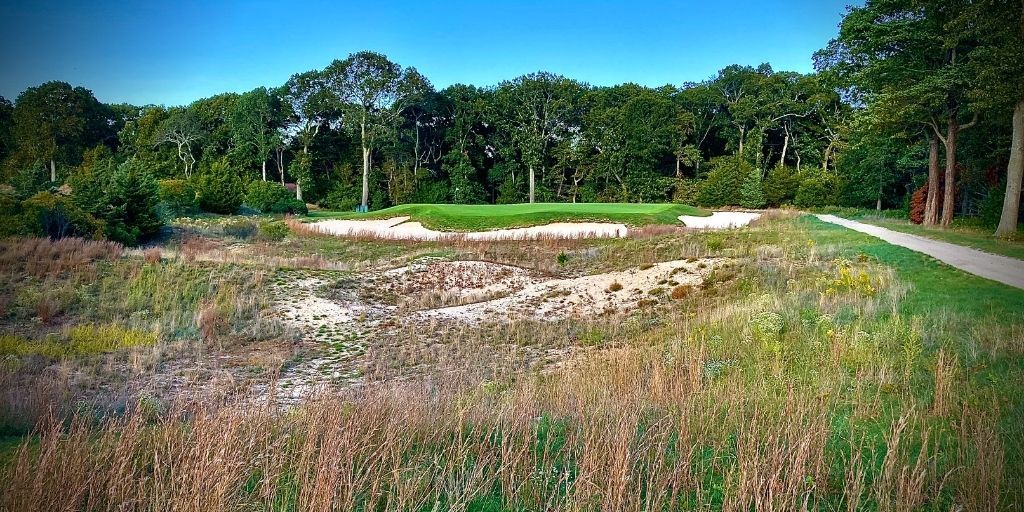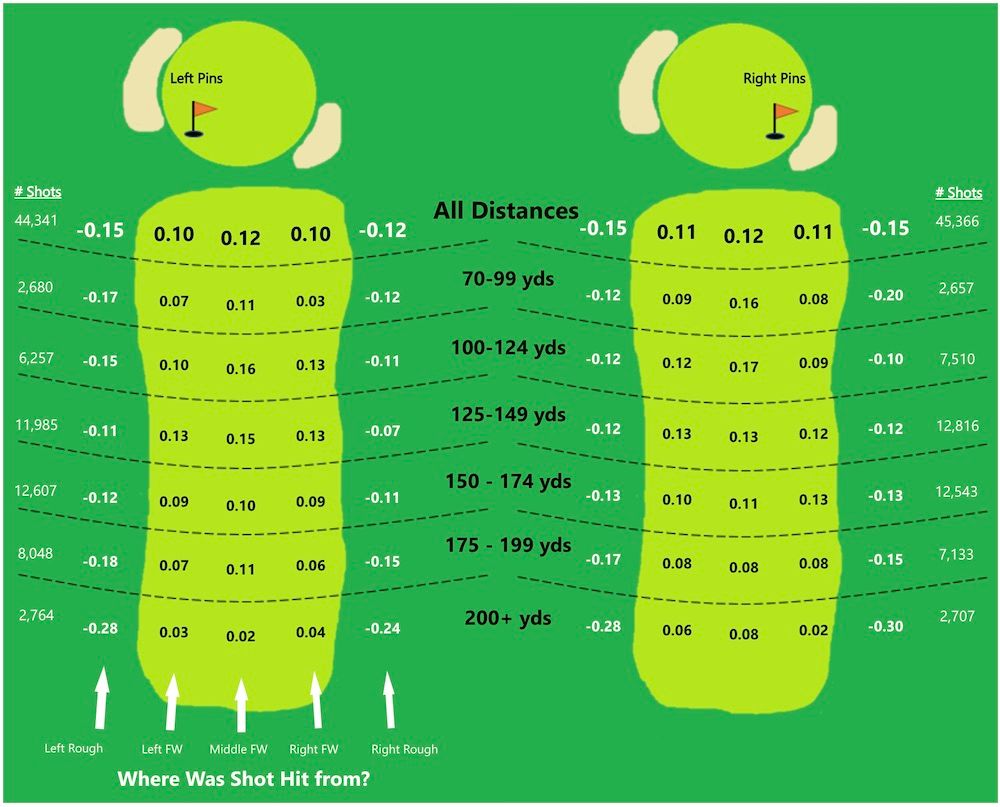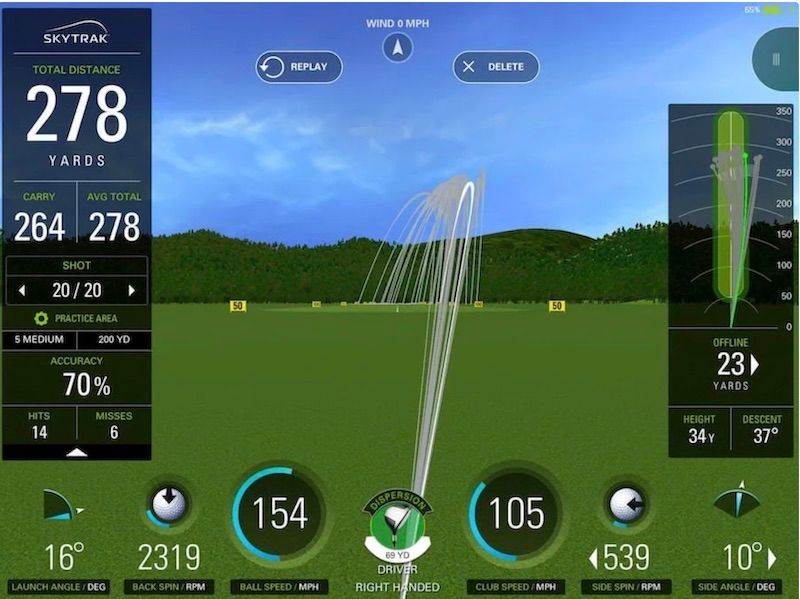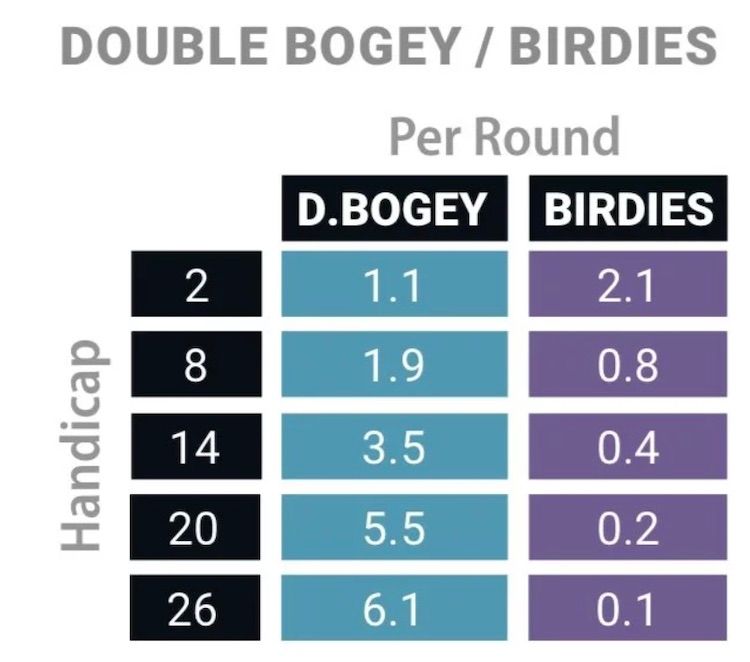
I've been playing golf for close to 25 years now. As I learn more and more about the game, there are lessons "hiding in plain sight" that I wish I knew when I was first taking up the game.
In this article, I'd like to explore a concept that eluded me for a long time. While I grasp its significance now, it's not something I'm perfect at. But like anything else in golf, I want to get better little by little over time. I think this basic framework can help you tremendously.
When we play golf, tons of moments feel connected. As you tally up your score, you can't help but think how the tee shot on the 3rd hole really changed how the day went. Even while you're in the heat of the battle, it's hard not to think about what happened on previous holes, or how the shot at hand might affect future results.
Without getting too philosophical, this game tugs at your brain from opposite directions. The past and the future want to influence your decisions. However, I've found that it's best to evaluate this game as a series of independent decisions.
Fighting the Past
Every time you approach the ball on the golf course, there is a new situation to evaluate. Even if you've played the same course 100 times, the wind, temperature, turf conditions, and how your swing feels that day are all variables to contend with. That's the beauty of golf - every day is different.
Once your round has started, your mind begins to fight against the past. If things are going poorly, your negative emotions may start to carry over. Perhaps you'll get a little more aggressive with your line off the tee, or start hunting at a pin you know you have no business attacking.
Conversely, if you're off to a hot start, your brain can start playing different tricks on you. To preserve your good fortunes, you might play a little too safely, and even start changing your technique.
Either way, no matter how strong your mental game is, prior results can weigh heavily on a golfer's mind as they evaluate the shot at hand.
Controlling the Future
As it pertains to strategy, golfers often let the future influence their decisions. One of the hardest things to do is not make decisions in the present that are affected by "wishful thinking" of your future self. To illustrate what I mean, I'll go through a couple of scenarios with tee shots and approach shots.
Chasing Angles Off the Tee
Golfers often try to favor one side of the fairway to get a better "angle" into the green based on pin position. For a long time, I subscribed to this belief myself. As I learn more about the game and seeing top-level statistics from all skill levels, I have yet to find any convincing argument for why it's a good idea.
For starters, take a look at this image compiled by Lou Stagner:

The image is a visual representation of about 90,000 shots hit on the PGA Tour with pins on the left-hand side of the green and the right. The numbers represent whether players are gaining or losing strokes by landing the ball in certain parts of the fairway or rough based on the pin position. For example, from 125-149 yards, a player who lands the shot in the right rough to a pin situated on the green's left side is losing .07 strokes to his competitors (indicated by the negative number).
While the image might be a bit confusing to some of you, let me summarize some of its key findings:
- The biggest gain in scoring is landing the ball in the fairway regardless of its position. It is about a 1/4 of a stroke advantage versus being in the rough.
- There were no distinct scoring changes when having an approach shot from the opposite side of the pin position. Angles did not matter.
So if PGA Tour players can't gain any advantage with a better angle into a pin, why should you? Wait, it gets even better...
You Can't Gain the Angle Even if You Try
A typical tour player has about a 65-70 yard wide dispersion pattern with their driver. In my own testing, I saw the same dispersion, which you can view in this article. With a shot distribution that wide and a typical fairway being around 30-32 yards on tour, how could they possibly keep it on one side with regularity?

For golfers who don't hit the ball that far off the tee, their dispersion tends to narrow (but not always). But it's nearly impossible for any golfer on the planet to land the ball consistently on one side of a fairway (let's say a 10-15 yard target). As my friend Scott Fawcett says, you're not out there with a sniper rifle; you have a shotgun in your hands. Don't expect precision off the tee (or just about anywhere else).
Getting back to my original point - when you do start worrying too much about your approach shot (the future) before you've even hit your tee shot, you are likely going to make some mental errors.
My basic strategy off of the tee, which is based on plenty of statistics I've analyzed, and my own data, is that you should try to hit the ball as far as possible while avoiding big trouble. That basic framework can help you lower your scores.
A concept like playing for the better angle on your approach shot might make sense theoretically. But it's virtually impossible to gain strokes over the long run because, for every angle that you do gain, you are likely bringing trouble into the play. Worse, if you do gain the angle, it's not really an advantage! As I've said before, being a gambler on the golf course doesn't work.
That's why every time I tee it up on a hole, I am *trying* (I'm not perfect) to remove the allure of gaining a favorable spot in the fairway, and not thinking about the future.
The Myth of Birdies and Approach Shots
For those of you who have read Practical Golf for years, you are more than familiar with my belief that chasing pins is a losing strategy. This is another battle between your "current self" and your "future self" on the course.
I know what you all want, and I want it too. It's a glorious feeling to watch your approach shots float at the pin and then drain that birdie putt. Sadly, it's unrealistic to expect.
Similar to chasing angles off the tee, trying to land the ball close to the pin does not work for two reasons:
- Your dispersion patterns with your irons make it impossible
- The birdie payoff does not exist because putting is really hard
I've often cited this stat from the PGA Tour, and it's always worth repeating. In the fairway from 100 - 125 yards, tour players average about 20 feet from the hole. Despite what announcers tell you, even they can't place the ball next to the pin.
On average, a tour player will only make 15% of their putts from 20 feet. A golfer who averages about 90 will be about 6%.
This combination of proximity with approach shots and putting difficulty is why birdies are not very common. The average PGA Tour player made 3.69 birdies per round in 2020. For recreational players with handicaps outside of the low single-digit range, birdies are almost non-existent (sorry to burst your bubble).

Overall, the desire to have those short birdie putts (future thinking) puts your present self in a bad situation. That's exactly why I tell almost every golfer this boring strategy will lower your handicap.
Approach Each Shot as an Independent Decision
Simple concepts that are almost too good to be true often raise eyebrows, and what I'm discussing in this article is no different. Of course, nothing I've said here is difficult to understand (or at least that's my hope). The separation value in golf will always be discipline and execution.
If you can get better at not letting the past and future effect each shot's decisions, you will become a better golfer. However, it's worth noting that you will fail at this many times, even if you're committed to this philosophy. I still do.
While I only discussed a couple of scenarios, it pertains to all parts of the game. Recovery shots, wedge play, putting - they are all tests. When you hit an errant tee shot, will you let the disappointment (past) and desire to save par (future) affect your target and club selection? Or will you analyze the situation without emotion and choose the optimal decision for the shot at hand.
I want you to give this concept some thought and think about how it applies to all the situations you've faced in recent rounds. I also encourage you to continue the conversation with other golfers in this thread in our community. I believe this is a problem that we can help each other solve.
We care about the protection of your data Read our Privacy Policy